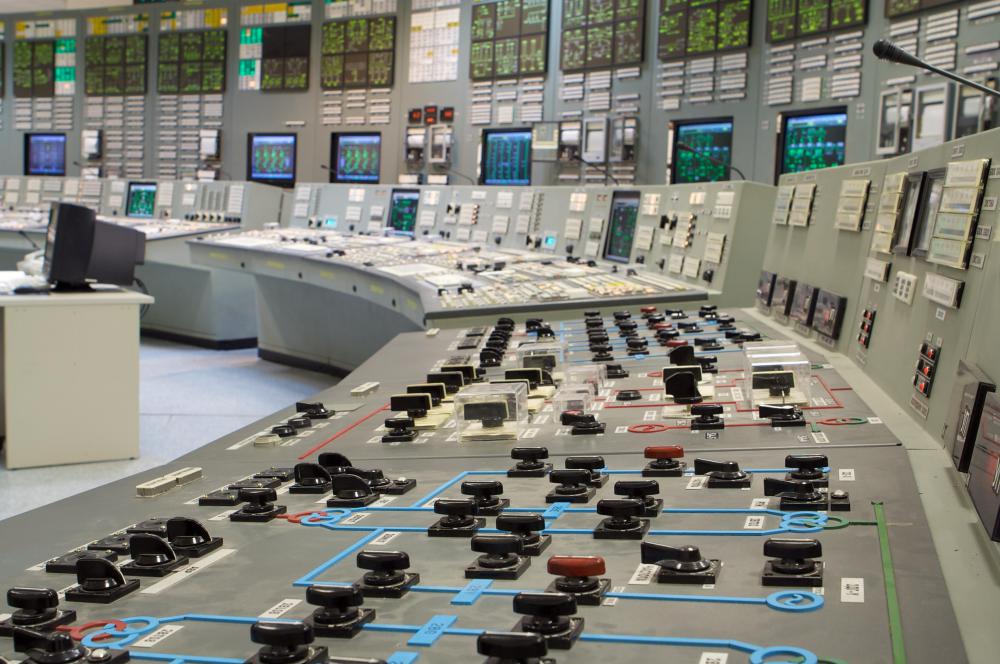At WiseGEEK, we're committed to delivering accurate, trustworthy information. Our expert-authored content is rigorously fact-checked and sourced from credible authorities. Discover how we uphold the highest standards in providing you with reliable knowledge.
What Are the Different Types of Nuclear Technician Jobs?
Nuclear technician jobs involve administering radiopharmaceuticals — substances that emit small but measurable radioactivity — to patients and measuring this activity as radionuclides on subsequent imaging scans in order to treat or identify diseases. After oral, nasal or intravenous administration, radiopharmaceuticals are absorbed into various tissues depending upon their designed function and then a variety of sophisticated cameras are used to obtain images of the body's resulting absorption or metabolism of the radionuclides. In the US, approximately half of nuclear technician jobs require the minimum preparation of an associate's degree to enter the field and almost one-quarter of the positions are held by technicians with bachelor's degrees. Nuclear technician jobs are complex and require significant training and education. The various types of nuclear technicians can be roughly classified as diagnostic or treatment techs, nuclear cardiology technicians or positive emission tomographer (PET) technicians.
Depending upon the size of the facility where they work, nuclear technicians may work primarily as diagnostic nuclear technicians or therapeutic nuclear technicians. Diagnostic nuclear technician jobs entail administering radiopharmaceuticals to patients and then measuring the material's absorption in the body. When compared to a healthy scan, diagnoses of different diseases can be made based upon increased or decreased radioactivity in the area studied. Therapeutic nuclear technicians administer radiopharmaceuticals, primarily in oncology, or cancer treatment, situations. In smaller medical centers, there is no distinction between the positions.

There are two formal areas of specialization in nuclear technician jobs. Both PET technicians and nuclear cardiology technicians require additional training and certification to work in these areas. PET technicians administer radiopharmaceuticals and then operate special computerized imaging equipment to produce a hologram, or a 3-dimensional image of the body. Cardiology nuclear technician jobs involve administration of radiopharmaceuticals that are able to demonstrate blood flow to the heart and within the heart's own vascular system during rest and during exertion. The images that result from both of these types of tests must then be organized, reviewed and saved within the equipment's computer system for review by the prescribing radiologist.

All nuclear technician jobs require careful attention to detail in order to protect the patient and technician from overexposure to radiation. Nuclear technicians must be proficient in the administration of the radiopharmaceutical and the operation of all imaging equipment. They must carefully document the patient's condition, their own compliance to the radiologist's specific orders, and the disposal of all radioactive waste and materials.
AS FEATURED ON:
AS FEATURED ON:












Discuss this Article
Post your comments